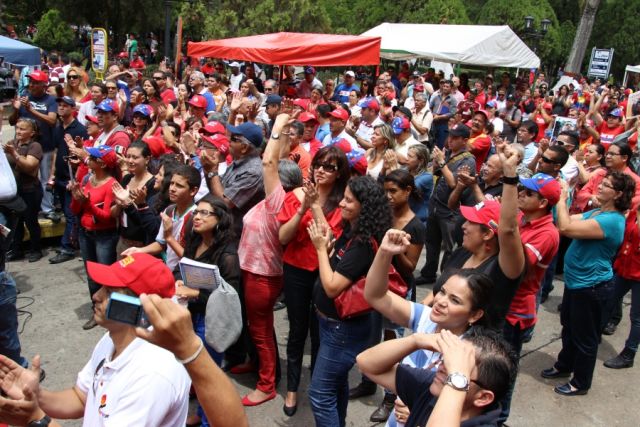
About 100 people packed into the Gaelic Club on May 10 for the Politics in the Pub forum: "Venezuela — A New Democracy or a Command Capitalist State?" Speakers were Latin America’s Turbulent Transitions co-author Federico Fuentes and Latin American studies post-graduate Rodrigo Acuna.
The speakers rejected the "Command Capitalist State" definition of Venezuela today.
Fuentes said: "While not yet a new democracy, Venezuela today represents the site of a profound ongoing revolution, which has not only rolled back neoliberalism, but also begun laying the necessary foundations for any serious project of transition or transformation towards a new democracy, one which Venezuelans have chosen to call 21st century socialism.
"Today, not only have the traditionally marginalised [sectors] captured the state and used it to bring key sections of the economy under its control, they have also used this position of strength to construct the building block of a new power created from below, and to diversify the economy while promoting experiments in workers' management.
"Yet, the old has far from disappeared. The old economic elites continue to have control over important sections of the economy, and the old state bureaucracy is not only far from dismantled, but continuously seems to reassert itself. At the same time, new economic and state interests are arising. And while tremendous strides have been made in worker and community organising, evidence of old habits continuing to exist abound.
"What does the death of [former President Hugo] Chavez and the election of [new President Nicolas] Maduro all mean?
"One. There is little indication that this change represents a change in direction for the process.
"Two. The absence of Chavez — whose role in all this cannot be underestimated — has clearly weakened the process. However, the elections showed a majority still support the project. It showed over 7 million [people] willing not just to vote, but subsequently to defend their vote in the streets.
"Three. Sensing this weakness, and unable to cope with the idea of six more years of Chavismo, the [right-wing] opposition has launched a new offensive — which one could characterise as the construction of a mass-based fascist movement — generally the last resort of an economic elite who see no other option to defend their interests.
"Four. So, we can expect important confrontations, ones that point in the direction of what Chavez outlined in his [2012] election platform: the need to go past the point of no return. Whether this occurs or not will be decided not just in Venezuela, but across Latin America and beyond."
Acuna focussed on the international impact of Venezuela's Bolivarian revolution, especially its profound effect in moving toward a more united and integrated Latin America. He stressed the key role of Venezuela in assisting the poorer countries of Latin America and the Caribbean to develop social programs.
The talks were followed by a lively discussion and questions, which ranged over many issues and challenges facing the Venezuelan revolution. The meeting supported a call for increased international solidarity with Venezuela in the face of mounting US interference.
[The Sydney book launch of Latin America's Turbulent Transitions will be at 6.30pm on June 8, at Art Resistance, Hut 24A, Addison Road Community Centre, 142 Addison Rd, Marrickville. Guests will include Acuna and Dr Peter Ross, senior lecturer in Americas Studies at the University of NSW.]